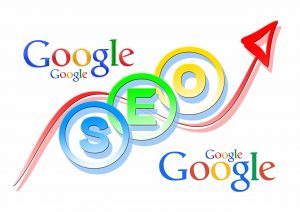
ML In Digital Marketing
A thorough marketing strategy fuels a company’s profitability. And any effective modern method must now include machine learning (ML) and artificial intelligence (AI). While many outdated strategies are still helpful, they represent a smaller and smaller part of a good marketing strategy.
Utilising all that new technology offers, businesses can streamline their marketing initiatives and increase their bottom line. Let’s examine AI and machine learning in digital marketing in more detail.
What is machine learning?
Machine learning (ML) helps people solve problems more effectively. Machine learning (ML), a subtype of AI, uses data to train itself to carry out tasks using AI capabilities.
As a cutting-edge tool that uses data to provide practical solutions to several challenging issues in digital marketing, ML may assist businesses in identifying hidden knowledge in existing consumer data to expedite marketing processes.
What is the impact of ML in digital marketing?
Although the long-term effects of ML on digital marketers are yet uncertain, they are already impacting the industry. Massive amounts of data may be analysed by ML technologies, producing insightful data that marketing teams can use to their advantage. Marketing teams in companies using ML technologies have more time to focus on other areas of specialisation and use ML findings to gain fresh, in-depth insights to improve their marketing strategies.
Machine learning applications in digital marketing help advertisers better understand their target customers and how to maximise interactions with them.
But when more data becomes available, change will happen more quickly than digital marketers expect. IDC FutureScapes estimates that 75% of developer teams will integrate AI into at least one service or application this year. By 2020, 85% of client contacts will be handled without the assistance of a human, predicts Gartner.
Whatever the opinions of digital specialists, ML is not intended to take the position of digital marketers. Its main goal is to assist in enhancing digital marketing strategies and simplify the work of digital marketers. Using ML tools and capabilities, you can streamline your digital system and position yourself for a future that depends on AI and ML.
What are the advantages of ML in digital marketing?
Making the most of your data in digital marketing may be accomplished in a variety of ways:
1. More effective user segmentation
Digital marketers can gradually learn more about their clients by measuring their activities in great detail.
Although a mobile app may contain 200 or more metrics that can be measured, the typical marketer is most likely to use only 25 of them. On the other hand, a computer may quickly 2. devour all of that data and use it for marketing purposes.
2. Delivering a more personalised level of customer service
A more customised experience can be had thanks to improved segmentation. Knowing where your consumer is in the funnel will allow you to provide them with the advertisement that best suits their tastes and stage.
3. Optimisation via originality
The ideal position, colour, size, and other characteristics of a CTA button or image can be determined through A/B testing. This is typically limited to a single variable, though. Marketers can test multiple variables simultaneously with machine learning, which can then reveal which ones were the most successful.
4. Automation of procedures
Machine learning is about more than merely being able to target users better. Learning to complete tasks without human supervision is at the core of it. A marketing campaign involves a lot of manual, trying, and repetitive tasks.
By automating these chores, marketers free up time to concentrate on problems that call for interpersonal engagement. Because of this, the procedure is more streamlined and effective, there are fewer human errors, and marketers are better equipped to handle challenging and strategic tasks.
What is the role of ML in digital marketing?
1. Remarketing
Only 2% of visitors convert to a website after their initial interaction. Even if they locate the necessary services or goods, these potential clients could divert or depart to hunt for different solutions. They might eventually purchase from your rivals just because their website is the last one they visit after taking in all the facts.
Remarketing is then used in this situation. In this entirely automatic process, tracking pixels are linked to website users, and once they leave the site, they are shown your advertisements.
2. Search Engine Optimization
It is unattainable to overstate the importance of search engine optimization (SEO) for growing your company. Using AI, your SEO campaign may become more effective, accurate, and efficient.
Along with aiding in keyword research, AI is essential for content creation. The days of loading your content with keywords to climb the SERPs (Search Engine Page Results) ladder are long gone. Google now uses artificial intelligence to establish the actual worth of the material on your website.
3. Competitive Analysis
A successful marketing endeavour requires a top-notch competitor study. Being a copycat is unlikely to be successful, but keeping an eye on what your rivals are doing can help you streamline your main tactics.
Solutions based on artificial intelligence may gather information from tens of thousands of websites and provide insightful data for businesses. They are designed to monitor the company’s entire online footprint on and off its website.
4. Customer Service
The secret to business expansion is a satisfied customer base. More than 75% of consumers recommend a brand to a friend after receiving good customer service. Many organisations invest millions of dollars to support customer care teams available around the clock. Other people use chatbots.
Chatbots are excellent examples of how artificial intelligence and machine learning may help your organisation. Customers can get help from them after hours. Even though these algorithms are now unable to handle complex scenarios, they can significantly enhance the client experience.
5. Paid search advertising
You want sponsored search commercials to generate high-quality leads that convert when you allocate money for them. Processing enormous volumes of data is required to present the correct advertisement to the right person at the right time.
Although people must still make critical decisions in paid search advertising, most of the procedure is automated. Only your target audience’s details, target keywords, and budget need to be provided. The rest is handled by an algorithm, from bidding to ad placement.
Final words
Human brain capacity is no longer required for simple tasks thanks to machine learning. This means that marketers using machine learning to enhance, automate, and optimise their marketing campaigns should focus their intelligence on strategy rather than operations. Accept machine learning since it is the future in all of your marketing endeavours.







